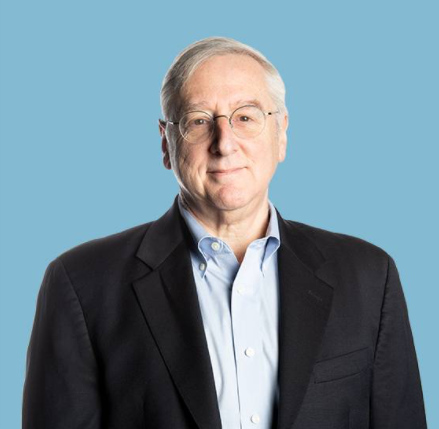Journalist Profile: Richard Eisenberg

The Article below was published in Vol. 136, Issue 7 of the Lake Forest College Stentor on April 2, 2021.
Jenna Mabus ’22
Staff Writer

Author, journalist, and editor Richard Eisenberg knew he wanted to pursue writing because of what he describes as his social and curious personality traits. His intrapersonal connections have led him to a long, ongoing, and successful career in the world of journalism.
For over nine years, Eisenberg has been an editor at PBS Next Avenue for the money and work channels. More recently, he accepted the position as the Managing Editor for the website. Eisenberg’s current role is just a fraction of his resume, which includes writing and editing positions at various media outlets as well as the pursuit of freelance journalism. Covering topics such as personal finance, retirement, and career switches, Eisenberg writes and edits stories for people age 50 years or older who need guidance and are searching for their life’s purpose.
Family members who aim to help their loved ones can also benefit from exploring the Next Avenue site. Eisenberg hopes people see the value journalism has on the future and passionately states, “It’s not dying, it’s not dead, it’s different.”
Eisenberg finds purpose in his work by knowing he is helping people, a fact that was made clear when asked to talk about his favorite article. Eisenberg pridefully reminisced about the many stories he has either written or edited for Next Avenue and other media outlets, but his piece, “Sorry, Nobody Wants Your Parents’ Stuff,” sparks particular delight for him and seems to have strongly resonated with Next Avenue readers. The article emerged after experiencing the loss of Eisenberg’s father and focused on where to home the belongings of those who have died.
In the article, Eisenberg talks about the struggles he and his sister faced while attempting to get rid of their father and late mother’s belongings, as charities and other places did not want them. “If we were going through this, I bet a lot of other people [were] too,” he said. Eisenberg’s recognition of his audience’s personal struggles is an example of how critical empathy is present within his writing. “I wanted to write about that experience and offer some advice for people,” Eisenberg said.
Though Eisenberg’s career may seem accomplished from an outsider’s perspective, he still has unfulfilled prospects he wishes to take on. Among those ambitions is to freelance for The New York Times. Eisenberg’s promising past is an indicator that assures him of a bright future as well. “I don’t look back with regret at all,” he said. Eisenberg identified interviewing as his favorite part of the writing process, noting, “[i]f I have questions about something, chances are, other people have similar questions about that but I am lucky that I have the opportunity to try and get answers for them,” Eisenberg said. “Every few weeks I get to interview an author of a new book that I just read and I think how lucky I am to actually get to talk to somebody who’s written a book that I found fascinating and I love to share it with my readers,” he adds.